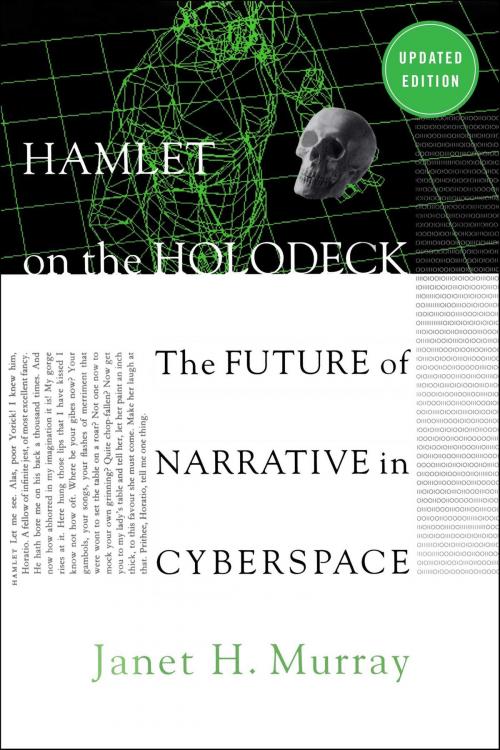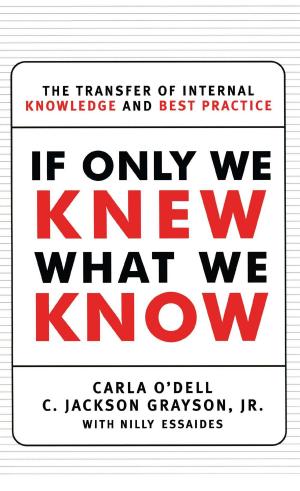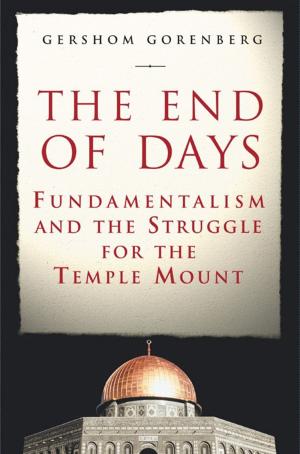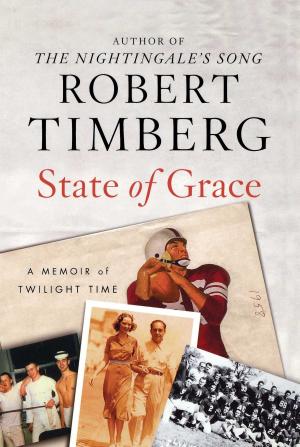Hamlet on the Holodeck
Nonfiction, Science & Nature, Technology, Social Aspects, Science, Other Sciences, Philosophy & Social Aspects| Author: | Janet H. Murray | ISBN: | 9781439136133 |
| Publisher: | Free Press | Publication: | February 2, 2016 |
| Imprint: | Free Press | Language: | English |
| Author: | Janet H. Murray |
| ISBN: | 9781439136133 |
| Publisher: | Free Press |
| Publication: | February 2, 2016 |
| Imprint: | Free Press |
| Language: | English |
Stories define how we think, the way we play, and the way we understand our lives. And just as Gutenberg made possible the stories that ushered in the Modem Era, so is the computer having a profound effect on the stories of the late 20th century. Today we are confronting the limits of books themselves -- anticipating the end of storytelling as we know it -- even as we witness the advent of a brave new world of cyberdramas. Computer technology of the late twentieth century is astonishing, thrilling, and strange, and no one is better qualified than Janet Murray to offer a breathtaking tour of how it is reshaping the stories we live by.
Can we imagine a world in which Homer's Iyre and Gutenberg's press have given way to virtual reality environments like the Star Trek® holodeck? Murray sees the harbingers of such a world in the fiction of Borges and Calvino, movies like Groundhog Day, and the videogames and Web sites of the 1990s. Where is our map for this new frontier, and what can we hope to find in it? What will it be like to step into our own stories for the first time, to change our vantage point at will, to construct our own worlds or change the outcome of a compelling adventure, be it a murder mystery or a torrid romance? Taking up where Marshall McLuhan left off, Murray offers profound and provocative answers to these and other questions.
She discusses the unique properties and pleasures of digital environments and connects them with the traditional satisfactions of narrative. She analyzes the state of "immersion," of participating in a text to such an extent that you literally get lost in a story and obliterate the outside world from your awareness. She dissects the titillating effect of cyber-narratives in which stories never climax and never end, because everything is morphable, and there are always infinite possibilities for the next scene. And she introduces us to enchanted landscapes populated by witty automated characters and inventive role-playing interactors, who together make up a new kind of commedia dell'arte. Equal parts daydream and how-to, Hamlet on the Holodeck is a brilliant blend of imagination and techno-wizardry that will provoke readers and guide writers for years to come.
Stories define how we think, the way we play, and the way we understand our lives. And just as Gutenberg made possible the stories that ushered in the Modem Era, so is the computer having a profound effect on the stories of the late 20th century. Today we are confronting the limits of books themselves -- anticipating the end of storytelling as we know it -- even as we witness the advent of a brave new world of cyberdramas. Computer technology of the late twentieth century is astonishing, thrilling, and strange, and no one is better qualified than Janet Murray to offer a breathtaking tour of how it is reshaping the stories we live by.
Can we imagine a world in which Homer's Iyre and Gutenberg's press have given way to virtual reality environments like the Star Trek® holodeck? Murray sees the harbingers of such a world in the fiction of Borges and Calvino, movies like Groundhog Day, and the videogames and Web sites of the 1990s. Where is our map for this new frontier, and what can we hope to find in it? What will it be like to step into our own stories for the first time, to change our vantage point at will, to construct our own worlds or change the outcome of a compelling adventure, be it a murder mystery or a torrid romance? Taking up where Marshall McLuhan left off, Murray offers profound and provocative answers to these and other questions.
She discusses the unique properties and pleasures of digital environments and connects them with the traditional satisfactions of narrative. She analyzes the state of "immersion," of participating in a text to such an extent that you literally get lost in a story and obliterate the outside world from your awareness. She dissects the titillating effect of cyber-narratives in which stories never climax and never end, because everything is morphable, and there are always infinite possibilities for the next scene. And she introduces us to enchanted landscapes populated by witty automated characters and inventive role-playing interactors, who together make up a new kind of commedia dell'arte. Equal parts daydream and how-to, Hamlet on the Holodeck is a brilliant blend of imagination and techno-wizardry that will provoke readers and guide writers for years to come.















